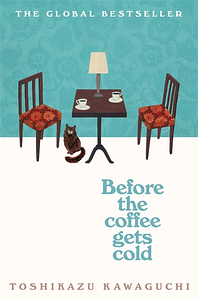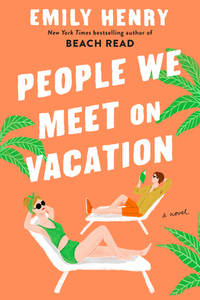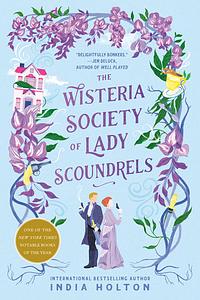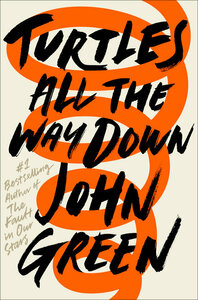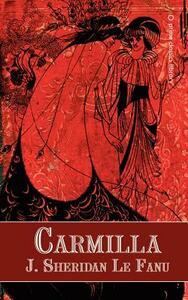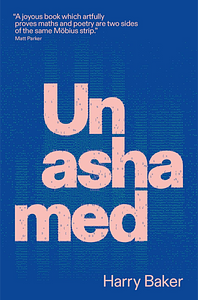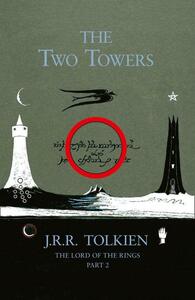Take a photo of a barcode or cover
thespacegeek's Reviews (276)
So. Where do I begin?
I have a lot of thoughts on this book, and while I’m not going to get into specifics, I’m also not going to keep this spoiler-free, so feel free to skip this if you plan to read the book. Alternatively, I would like to take the liberty to suggest that you don’t read this book because life is too short to endure 800-odd pages of an author consistently poking you until you completely fall apart.
A lot of people who didn’t like the book say a lot of things that I don’t agree with: I disagree that the book fools you into thinking it is the story of four friends, yes, the blurb does imply it but from the very first chapter, it was clear to me that the book treated Jude differently, and that he was more central to the story than any of the others. I also disagree with people who say that you don’t have friends like this in real life, or that you don’t get improbably rich or gain affluence, those may be valid points but they still don’t take away from the story.
Before I complain further, I want to make clear that there were parts of this book that were more beautifully written than anything I have ever read. I bookmarked so many pages, saved so many paragraphs, because it really is that well-written. The prose is hardly the issue here. It is what she does with this beautiful writing that left a bitter aftertaste with me, long after I finished reading it. It is probably why I’m not sure I want to own this book anymore, but I also don’t want to give it away to some unwitting person who is then subject to reader trauma.
No, the real problem I had, and I think this is a big problem, is the alarmingly offhanded way in which she has approached the subject matter, piling on with it to an extent that leaves your mental capacity for empathy completely saturated at the halfway mark.
I don’t want to harp on about how the situations Jude finds himself in, the unspeakable things that happen to him, are unrealistic. I do absolutely think that the individual things that happen to Jude have happened to people. I also think that it is implausible, which Jude as a skilled mathematician would attest to, that they would all happen to the same person consecutively in the span of less than 15 years. But that’s not really the point. The point of contention I have with the author is that the only reason she kept the abuse coming was because she wanted to see the reader cry, to push the reader as far as she could. And normally, I can get behind that intention, after all, writers can write whatever they want, for whatever reason, and I did go into this book knowing that it would make me cry. And it did. But it stopped when I no longer found what happened to Jude remotely plausible, and began to realise that Jude was just a voodoo doll for the author to elicit tears from me. Unfortunately, I think Jude is also just a vessel for the author to project all of her feelings about people with disabilities and abuse victims onto a fictional character and have him berate himself time and time again.
Halfway through the book, I started wondering about who exactly this book was for. Is it for people who’ve been through things Jude has, sexual and physical abuse, domestic violence, suicidal ideation, self-harm, to say the least? I think not, because I’m convinced this book would do far more to make the life of someone who struggles with having survived any of these things harder than actually help them by showing them an inkling of themselves in Jude. So then, is the book for people for whom none of these trigger warnings are triggers? But tell me, is that okay? Is it okay to exploit the sufferings of one group for the enjoyment of another? I doubt this book was written to be enjoyed, but we do read because we get pleasure out of reading. And at some point of this book, I felt icky about myself wanting to continue reading it, because I couldn’t get behind that.
Well, let’s let that slide too. Maybe the suffering is okay because it’s “compensated”, or so the author thinks, by Jude always having loving people around him, people who would drop everything immediately just to be there for him. I understand when people say that they found this unrealistic, but I think I can believe it. What I really could not believe was the author’s adamant denial of therapy actually helping people.
Part of why the first half of this book affected me so much is because I have been in Willem’s shoes, living in constant fear that a friend would choose to hurt themselves. And I know how difficult it was to get them to ask for and accept help, but I also know how much therapy does help! I find the author’s thesis statement beyond appalling. The entire point she’s tried to drive so deeply into us is that sometimes there is no hope, and no amount of love or friendship or respect or therapy can help and that sometimes, death is really the only option. I’m afraid this is not a message I can remotely get on board with.
I know that therapy is not a magical end-all to every problem, I know it can sometimes take several years until you find the right therapist, and that there can be a very long road to recovery with several hoops to jump through. But it is so irresponsible to me that the author would have Jude be abducted and sexually abused and to be left for dead by a psychologist - a plotline that came across as almost comically villainous - purely to justify his not going to therapy until much, much later in life. And shortly after giving it a real shot, he dies anyway, by his own means, because as the author wants us to know: sometimes that really is the only solution. She said as much. She said she wanted to depict the story of someone who cannot be saved, who’s only salvation is in death - and she cast as the main character of that story an abuse survivor, someone with physical disability and mental health issues. That is fundamentally why I cannot get on the bandwagon about this book. It is an incredibly callous take on several of the aforementioned issues that real people have very difficult times with.
There were so many things that I thought were actually done well, but I don’t feel like I have it in me to sing the author’s praises anymore. Talent goes a long way, sure, but empathy goes longer.
I will say though that there was a paragraph early on about friendship that resonated with me as it’s something I myself have thought before, in terms of how friendship is not given nearly the same importance as romantic relationships. I was disappointed that the author went on to then turn the most developed friendship in the story into a romantic relationship, that starts out so badly that it really soured my opinion of Willem in a way that took a while to recover from. It all made sense of course, when Willem dies, because I suppose the author needed Jude to grieve him like more than a friend would, disproving her initial argument in favour of platonic relationships.
I want to add that I don’t want to offend anyone with this review. I can see that this book has changed a lot of people’s lives, and I’m glad that they were able to get something positive out of it (despite the author’s best efforts, I must say). I am glad that this book did for you what it didn’t do for me, despite my wanting it to.
I have always been able to tell how much I’d love a book from how it starts. It seems like I was quite off this time, and I still don’t really understand how to rate this book. As a literary work, purely in terms of storytelling prowess, it’s good, great even. But I would feel disingenuous giving it 4 or 5 stars given how vehemently I disagree with everything it stands for, and given how hollow it’s left me feeling. I’m going to leave it unrated for now.
Reminder: if you decide to read the book anyway, read the trigger warnings first and let someone you trust know you’re reading it.
I have a lot of thoughts on this book, and while I’m not going to get into specifics, I’m also not going to keep this spoiler-free, so feel free to skip this if you plan to read the book. Alternatively, I would like to take the liberty to suggest that you don’t read this book because life is too short to endure 800-odd pages of an author consistently poking you until you completely fall apart.
A lot of people who didn’t like the book say a lot of things that I don’t agree with: I disagree that the book fools you into thinking it is the story of four friends, yes, the blurb does imply it but from the very first chapter, it was clear to me that the book treated Jude differently, and that he was more central to the story than any of the others. I also disagree with people who say that you don’t have friends like this in real life, or that you don’t get improbably rich or gain affluence, those may be valid points but they still don’t take away from the story.
Before I complain further, I want to make clear that there were parts of this book that were more beautifully written than anything I have ever read. I bookmarked so many pages, saved so many paragraphs, because it really is that well-written. The prose is hardly the issue here. It is what she does with this beautiful writing that left a bitter aftertaste with me, long after I finished reading it. It is probably why I’m not sure I want to own this book anymore, but I also don’t want to give it away to some unwitting person who is then subject to reader trauma.
No, the real problem I had, and I think this is a big problem, is the alarmingly offhanded way in which she has approached the subject matter, piling on with it to an extent that leaves your mental capacity for empathy completely saturated at the halfway mark.
I don’t want to harp on about how the situations Jude finds himself in, the unspeakable things that happen to him, are unrealistic. I do absolutely think that the individual things that happen to Jude have happened to people. I also think that it is implausible, which Jude as a skilled mathematician would attest to, that they would all happen to the same person consecutively in the span of less than 15 years. But that’s not really the point. The point of contention I have with the author is that the only reason she kept the abuse coming was because she wanted to see the reader cry, to push the reader as far as she could. And normally, I can get behind that intention, after all, writers can write whatever they want, for whatever reason, and I did go into this book knowing that it would make me cry. And it did. But it stopped when I no longer found what happened to Jude remotely plausible, and began to realise that Jude was just a voodoo doll for the author to elicit tears from me. Unfortunately, I think Jude is also just a vessel for the author to project all of her feelings about people with disabilities and abuse victims onto a fictional character and have him berate himself time and time again.
Halfway through the book, I started wondering about who exactly this book was for. Is it for people who’ve been through things Jude has, sexual and physical abuse, domestic violence, suicidal ideation, self-harm, to say the least? I think not, because I’m convinced this book would do far more to make the life of someone who struggles with having survived any of these things harder than actually help them by showing them an inkling of themselves in Jude. So then, is the book for people for whom none of these trigger warnings are triggers? But tell me, is that okay? Is it okay to exploit the sufferings of one group for the enjoyment of another? I doubt this book was written to be enjoyed, but we do read because we get pleasure out of reading. And at some point of this book, I felt icky about myself wanting to continue reading it, because I couldn’t get behind that.
Well, let’s let that slide too. Maybe the suffering is okay because it’s “compensated”, or so the author thinks, by Jude always having loving people around him, people who would drop everything immediately just to be there for him. I understand when people say that they found this unrealistic, but I think I can believe it. What I really could not believe was the author’s adamant denial of therapy actually helping people.
Part of why the first half of this book affected me so much is because I have been in Willem’s shoes, living in constant fear that a friend would choose to hurt themselves. And I know how difficult it was to get them to ask for and accept help, but I also know how much therapy does help! I find the author’s thesis statement beyond appalling. The entire point she’s tried to drive so deeply into us is that sometimes there is no hope, and no amount of love or friendship or respect or therapy can help and that sometimes, death is really the only option. I’m afraid this is not a message I can remotely get on board with.
I know that therapy is not a magical end-all to every problem, I know it can sometimes take several years until you find the right therapist, and that there can be a very long road to recovery with several hoops to jump through. But it is so irresponsible to me that the author would have Jude be abducted and sexually abused and to be left for dead by a psychologist - a plotline that came across as almost comically villainous - purely to justify his not going to therapy until much, much later in life. And shortly after giving it a real shot, he dies anyway, by his own means, because as the author wants us to know: sometimes that really is the only solution. She said as much. She said she wanted to depict the story of someone who cannot be saved, who’s only salvation is in death - and she cast as the main character of that story an abuse survivor, someone with physical disability and mental health issues. That is fundamentally why I cannot get on the bandwagon about this book. It is an incredibly callous take on several of the aforementioned issues that real people have very difficult times with.
There were so many things that I thought were actually done well, but I don’t feel like I have it in me to sing the author’s praises anymore. Talent goes a long way, sure, but empathy goes longer.
I will say though that there was a paragraph early on about friendship that resonated with me as it’s something I myself have thought before, in terms of how friendship is not given nearly the same importance as romantic relationships. I was disappointed that the author went on to then turn the most developed friendship in the story into a romantic relationship, that starts out so badly that it really soured my opinion of Willem in a way that took a while to recover from. It all made sense of course, when Willem dies, because I suppose the author needed Jude to grieve him like more than a friend would, disproving her initial argument in favour of platonic relationships.
I want to add that I don’t want to offend anyone with this review. I can see that this book has changed a lot of people’s lives, and I’m glad that they were able to get something positive out of it (despite the author’s best efforts, I must say). I am glad that this book did for you what it didn’t do for me, despite my wanting it to.
I have always been able to tell how much I’d love a book from how it starts. It seems like I was quite off this time, and I still don’t really understand how to rate this book. As a literary work, purely in terms of storytelling prowess, it’s good, great even. But I would feel disingenuous giving it 4 or 5 stars given how vehemently I disagree with everything it stands for, and given how hollow it’s left me feeling. I’m going to leave it unrated for now.
Reminder: if you decide to read the book anyway, read the trigger warnings first and let someone you trust know you’re reading it.

